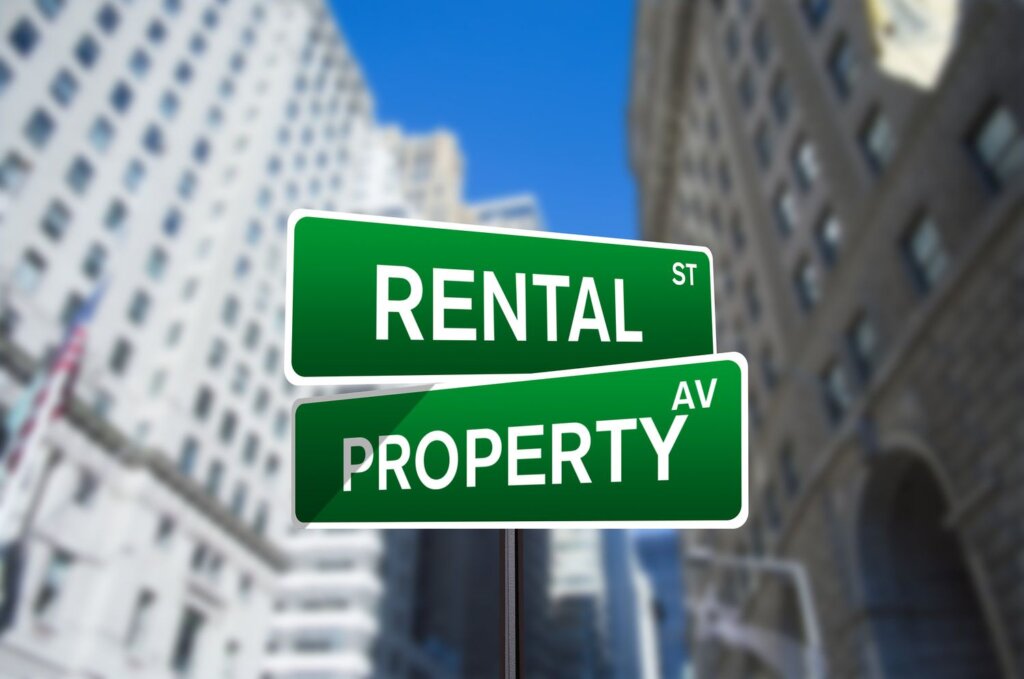Introduction
If you’re considering selling a rental property in Connecticut, you’re likely weighing a number of factors. Maybe your property isn’t generating the cash flow you expected, or perhaps you’re dealing with the stresses of tenant issues, costly maintenance, or the complexities of managing a rental. Perhaps you’ve decided that managing a rental property isn’t for you anymore, and you’re looking for a way to exit the market quickly and profitably.
As someone searching for information on how to sell a rental property in Connecticut, you’re likely looking for a streamlined, clear path that maximizes your return while minimizing hassle. You probably have concerns about the potential costs involved in selling through a traditional route, dealing with tenants, or the long timeline required when using a realtor. You’re wondering if selling the property “as-is” would be the best option and whether the property’s current condition will affect the price. You’re also probably thinking about the taxes involved and whether it makes more sense to sell to a real estate investor for cash, allowing for a faster, simpler transaction. In short, you’re looking for practical answers and real solutions.
This guide is tailored to help you answer those questions by laying out the best options for selling your rental property in Connecticut. I’ll break down the pros and cons of each option and explain why selling to a cash buyer may be your smartest move.
How to Sell a Rental Property in Connecticut: A Step-by-Step Guide

Selling a rental property in Connecticut can be a challenging process, especially if you’re trying to navigate it on your own. Whether you’ve owned the property for years or just a few months, the complexities of the process—especially if you have tenants or are dealing with repairs—can be overwhelming. In this guide, I’ll walk you through the various steps involved in selling a rental property in Connecticut and why you should consider each factor carefully.
The main goal for most people looking to sell a rental property is to sell their house fast and with minimal hassle. The traditional route can be long and arduous, but there are options available that allow you to skip the headaches of repairs, realtor fees, and waiting months for a buyer.
Understanding Your Selling Options in Connecticut
The first step when considering selling your rental property is understanding the different selling routes available to you in Connecticut. Here are the primary options you’ll encounter:
- Selling through a Real Estate Agent
This is the most common way to sell any property, but it comes with several key drawbacks. First, you’ll need to make repairs and improvements to attract buyers, especially if the house is in disrepair or outdated. You’ll also have to pay agent fees, typically 5-6% of the final sale price, which can add up to thousands of dollars. Moreover, there’s no guarantee how long it will take to close a deal, especially in a competitive market. - Selling “As-Is” to a Cash Buyer
If you’re asking, “Can you sell a rental property with tenants in Connecticut?” selling “as-is” could be the best route. In this case, you won’t have to make repairs or worry about tenants. Cash buyers—typically house-buying companies or real estate investors—will make an offer based on the property’s current condition, offering you a quick sale without the need to list the house or engage with realtors. This is an appealing option for landlords who want to avoid lengthy listing processes and avoid paying agent commissions. - Sell by Owner
If you’re confident in your ability to handle the sale on your own, selling the house by yourself without a realtor may save you money on agent commissions. However, this option requires a lot of time, effort, and know-how in terms of pricing, marketing, and negotiating with buyers.
How to Sell a Rental Property With Tenants in Connecticut
If your rental property is currently occupied, selling can be more complicated. Can you sell a rental property with tenants in Connecticut? The short answer is yes, but there are a few things to keep in mind:
- Tenant Rights: Connecticut law offers tenants certain rights that may impact the sale of your rental property. If your tenants have a lease, you’ll need to honor that agreement until the lease term ends. If the tenants are month-to-month, you can terminate the lease with proper notice.
- Informing Tenants: You’ll need to notify your tenants of your intention to sell, ideally in writing. This ensures transparency and keeps the process smooth for everyone involved.
- Tenant Cooperation: Ideally, you’ll want your tenants to cooperate with the sale by keeping the property in good condition and allowing for showings. However, this may not always be the case, so you’ll need to plan accordingly, especially if the tenants are difficult to deal with.
One of the benefits of selling to a house buying company near you is that they can often take over a property even if tenants are still living there, eliminating the stress of evicting or negotiating with them.
For more detailed information about selling a rental property with tenants, check out our guide on Can You Sell a Rental Property With Tenants in Connecticut?.
How to Sell a Vacant Rental Property in Connecticut
Selling a vacant property can often be easier than selling a tenant-occupied one. However, you still have to consider some key factors when selling a vacant rental property:
- Property Condition: A vacant home is at a higher risk for damage such as leaks, mold, or vandalism. You’ll want to ensure that the house is properly secured and maintained while you go through the selling process. If there are significant issues, they’ll need to be addressed before the sale.
- Marketing: If the property is vacant, you may need to invest in staging or professional photography to make the home more appealing to buyers. This can be costly but will increase the chances of attracting a good offer.
Selling a vacant rental property in Connecticut could be a bit more straightforward than dealing with tenants, but you still have to keep in mind the expenses related to repairs and maintenance. If the home is in poor condition, selling to an investor could be a better option.
Tax Implications of Selling a Rental Property in Connecticut
One major concern when selling a rental property is the tax implications. In Connecticut, taxes on rental property sales can be substantial, especially if you’ve owned the property for a long time. Here’s what you need to know:
- Capital Gains Tax: If you’ve made a profit on the sale of your rental property, you’ll be subject to capital gains taxes. The amount depends on how long you’ve owned the property and whether you qualify for exemptions.
- Depreciation Recapture: If you’ve been depreciating the property for tax purposes, you may be subject to depreciation recapture taxes when you sell. This can add up, making the sale less profitable than you might expect.
Understanding these tax implications before you sell is crucial. A tax professional can help you understand the full impact of selling your rental property and what deductions or exemptions may be available to you.
For more information on taxes, check out our detailed guide on the Tax Implications of Selling a Rental Property in Connecticut.
Selling an Underperforming Rental Property in Connecticut
If your rental property in Connecticut isn’t delivering the returns you expected—whether due to low rental income, high maintenance costs, or difficult tenants—it might be time to consider selling. An underperforming rental can drain your finances and energy, and continuing to hold onto it could prevent you from capitalizing on other opportunities.
One of the main reasons to sell an underperforming rental property is the high cost of repairs and maintenance. If the property is constantly requiring expensive fixes, it may no longer be a good investment. Instead of continuing to pour money into a property that’s not generating sufficient cash flow, selling could free up capital for better opportunities.
Another factor to consider is the difficulty in finding quality tenants. If your rental property is constantly vacant or attracting problematic tenants, it might be costing you more in lost rent and legal fees than it’s worth.
In many cases, selling for cash to a real estate investor can offer a quicker, less stressful solution. Investors often purchase properties in any condition and can close quickly, allowing you to move on without further headaches.
Benefits of Selling a Rental Property for Cash in Connecticut
Selling a rental property for cash in Connecticut offers several compelling benefits, especially for landlords seeking a quick and stress-free transaction. One of the most significant advantages is the speed of the sale. Cash buyers can close in as little as a week, compared to the months it might take to sell through traditional methods. This is especially beneficial for those in urgent situations, such as foreclosure or needing to relocate quickly.
Another major benefit is that you can sell your property as-is, without having to spend money on repairs or renovations. Cash buyers are typically willing to purchase homes in any condition, whether they need cosmetic updates or more substantial repairs. This can save you thousands of dollars and a lot of time.
Additionally, selling for cash eliminates the need for agent commissions or hefty closing fees. With no middleman involved, you keep more of the sale price.
Finally, selling to an investor can help you avoid tenant-related issues and the complications of evicting or negotiating with tenants, making the process more streamlined and hassle-free.
If you’re interested in learning more about the advantages of selling your rental property for cash, be sure to check out our detailed guide on the Benefits of Selling a Rental Property for Cash in Connecticut.
Selling a Rental Property in Connecticut: How to Handle Outstanding Mortgages
If your rental property has an outstanding mortgage, selling can get a little trickier. You’ll need to ensure that the sale price of the home is enough to cover your mortgage balance, including any fees or penalties for early repayment. If you owe more than the home is worth (a situation known as being “underwater”), you may have to explore alternative options, like a short sale, where the lender agrees to accept less than the full loan amount.
One of the benefits of selling to a real estate investor is that they are often more flexible when it comes to handling mortgage balances. An investor might be willing to take over the mortgage as part of the sale or make you a cash offer that allows you to cover your loan and move on quickly. If you’re unsure about how to proceed with selling a property with an existing mortgage, it’s always a good idea to consult a real estate professional or financial advisor.
For more guidance on selling properties with financial considerations, refer to our article on Selling an Underperforming Rental Property in Connecticut.
How to Sell a Property That Needs Major Repairs in Connecticut
Selling a property that requires significant repairs can be a daunting task, but it doesn’t have to be. Many homeowners are concerned that their property’s poor condition will drastically lower its market value. However, this isn’t always the case—especially if you’re willing to sell as-is.
Real estate investors often purchase homes in less-than-ideal conditions and offer cash for properties without requiring the seller to fix anything. This option can be a major relief if the cost of repairs is overwhelming or if you simply don’t have the time or resources to make improvements. While the offer price may be lower compared to a fully renovated home, the benefits of selling quickly and without the burden of repairs can outweigh this downside.
If you were to sell through a traditional realtor, you might have to make repairs to make the property appealing to potential buyers. This could include fixing structural issues, updating outdated systems, or addressing cosmetic damage. These costs can quickly add up, and even then, there’s no guarantee that a buyer will be interested.
For more on this topic, check out our blog How to Sell a Vacant Rental Property in Connecticut, which discusses selling under various property conditions.
The Cost of Selling a Rental Property in Connecticut: Hidden Fees to Expect
When you’re selling a rental property in Connecticut, you’ll encounter several costs, many of which are not immediately apparent. Aside from the obvious expenses, such as agent commissions or closing costs, you may also be responsible for repair costs, staging, or even carrying costs for the property while it’s on the market.
Real estate agents typically charge 5-6% in commissions, which can add up quickly on the sale price of your home. In addition to the agent’s fee, you might have to cover inspection costs, appraisal fees, and other associated closing costs. Depending on the condition of the property, you could also be asked to make repairs before finalizing the sale.
Alternatively, selling to a cash buyer can reduce these costs significantly. Most investors will buy the property “as-is,” meaning they’ll handle any repairs, reducing the out-of-pocket expenses you’d otherwise face. The trade-off is that cash offers tend to be lower than what you might get in a traditional sale, but the convenience and lower costs often make it worth it.
For a deeper look into potential costs, check out this cost breakdown guide on selling real estate from Zillow, which can give you an idea of what to expect when selling a property.
The Impact of Connecticut’s Real Estate Market on Your Sale
Connecticut’s real estate market has its own unique dynamics that can impact your sale. In areas where property values are rising, you may get a higher price for your rental property. However, in markets where values are stagnant or declining, the sale may take longer or require a larger discount to attract buyers.
Understanding the local market conditions is critical when planning to sell your rental property. For instance, in urban areas like Hartford or Stamford, there may be more demand for rental properties, but the competition can also be higher. In contrast, in more rural parts of Connecticut, demand may be lower, and your property may stay on the market for longer.
Real estate investors are often more in tune with local market conditions, and they may be able to offer you a fair price regardless of how the market is performing. These investors can also speed up the sale process, meaning you’re less likely to be stuck holding onto a property that isn’t moving.
For a snapshot of Connecticut’s real estate market, visit Zillow’s Connecticut Market Overview. This site provides a wealth of information on property values, trends, and the overall state of the housing market in Connecticut.
What to Do After Selling Your Rental Property in Connecticut
Once you’ve successfully sold your rental property, there are several next steps to consider. Whether you’re selling because you want to retire from being a landlord or simply looking to reinvest, the next phase of your financial journey will depend on how you handle the proceeds.
One important consideration is tax planning. As mentioned earlier, selling a rental property can trigger significant tax obligations, so it’s crucial to consult with a tax professional to ensure you’re making the most of your proceeds.
Additionally, if you plan to reinvest the money from your sale, a 1031 Exchange could be a beneficial option. This allows you to defer paying capital gains taxes by reinvesting the proceeds into another investment property.
For more on 1031 Exchange rules, visit the IRS official page on like-kind exchanges to understand how this tax-deferral strategy works.
Conclusion: Is Selling Your Rental Property in Connecticut Worth It?
Selling a rental property in Connecticut has both its advantages and challenges. Depending on your situation, selling via a realtor might be the best option, or you might prefer a quicker, hassle-free sale by working with a cash buyer. It’s important to carefully weigh all factors, such as tax implications, repair costs, and the condition of your property, to determine the best path forward.
If you’re looking to sell fast and avoid the complexities of repairs, agent fees, or tenant issues, working with Green Apple House Buyers might be your best bet. While the offer price may be lower compared to a traditional sale, the convenience and speed of a cash sale often outweigh the disadvantages. At Green Apple House Buyers, we specialize in purchasing properties as-is, and we can provide a fair, no-obligation cash offer, allowing you to sell your rental property quickly and with minimal hassle.
For landlords who want to sell their house fast and avoid the stress of lengthy listing processes or managing tenants, Green Apple House Buyers offers the simplest solution. Contact us today to learn how we can help you make a fast, hassle-free sale and move on with ease.

